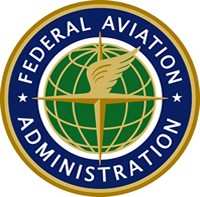Are FAA Expectations For Contractors Unrealistic?
 According to a recent report
from Transportation Department auditors, any anticipated savings
from outsourcing flight service stations could be diminished by the
short timeline given to Lockheed Martin to make the massive
transition.
According to a recent report
from Transportation Department auditors, any anticipated savings
from outsourcing flight service stations could be diminished by the
short timeline given to Lockheed Martin to make the massive
transition.
Last year, the Transportation Inspector General's office decided
to perform the audit based on the sheer magnitude of the conversion
process, according to online watchdog organization
GovernmentExecutive.com
The audit reviewers warn an "extremely aggressive consolidation
schedule" requires Lockheed Martin to consolidate the Federal
Aviation Administration's flight service stations -- all 58 of them
-- into three hub stations and 16 refurbished locations. Then
complete, test and implement a new operating system to link the new
sites.
And, to do it all within six months.
"We found that FAA has implemented effective controls over the
initial transition of flight service stations to contract
operations," the auditors wrote. "It is uncertain, however, if the
controls put in place by FAA will be sufficient to ensure that
anticipated savings are achieved during the next and most critical
phase of the transition."
The FAA has projected FSS outsourcing will translate into a
savings of $2.2 billion over 10 years.
As ANN reported, Lockheed
Martin began this project when it was awarded the $1.7 billion
public-private outsourcing contract February 1, 2005. The company,
the FAA, and the contract has been under fire pretty much ever
since -- with accusations of deteriorating services, delays and
contractual problems. The FAA recently promised to take a closer look at user
complaints.
According to the report, Lockheed has already requested $177
million in contract adjustments; $147 million of which is linked to
what the company contends were problems with the labor rates the
FAA provided potential bidders. Lockheed says it based its bid on
these rates.
FAA spokesman Paul Takemoto said he could not comment on any
contract adjustments. But of the current status of the FSS
transition, he said, "The consolidation is pretty much on schedule,
[though] some facilities are delayed."
One of the delays involves the facilities' new operating system
which has already seen a 10-month delay in its development phase.
FAA officials have said there could possibly be another delay, as
long as six-weeks that could cause a domino effect of further
delays.
 Auditors said any delay could
incur such additional costs as building lease extensions. The FAA
would likely take care of some of those additional costs, although
the reason for the delay would be taken in to consideration. It was
not estimated how much any of this would eat into the projected
savings.
Auditors said any delay could
incur such additional costs as building lease extensions. The FAA
would likely take care of some of those additional costs, although
the reason for the delay would be taken in to consideration. It was
not estimated how much any of this would eat into the projected
savings.
The auditors offered several recommendations to the FAA. One
said the agency should make sure Lockheed has contingency plans in
place in case of transition delays. Another suggested an
independent means of monitoring customer service be established. It
also wants the FAA to "clarify its savings estimates" as initial
reports had that number at $1.7 billion instead of the current $2.2
billion.
The FAA agreed with the auditors' recommendations except for
one; that it "needs to develop an oversight plan that monitors the
contractor's staffing and plans for ensuring that specialists are
properly trained and certified in areas that meet user demand."
The agency says programs already in place are sufficient enough
to supervise service levels.
But, the auditors found, "Staffing levels at outsourced
facilities were lower than what the contractor anticipated..."
Lockheed attributes this discrepancy to attrition that occurred
faster than they expected.
The FSS transition, according to the current timeline, is
scheduled for completion at the end of July.
 Aero-News: Quote of the Day (12.11.25)
Aero-News: Quote of the Day (12.11.25) ANN's Daily Aero-Term (12.11.25): Nonradar Arrival
ANN's Daily Aero-Term (12.11.25): Nonradar Arrival Classic Aero-TV: David Uhl and the Lofty Art of Aircraft Portraiture
Classic Aero-TV: David Uhl and the Lofty Art of Aircraft Portraiture Airborne-NextGen 12.09.25: Amazon Crash, China Rocket Accident, UAV Black Hawk
Airborne-NextGen 12.09.25: Amazon Crash, China Rocket Accident, UAV Black Hawk Airborne 12.05.25: Thunderbird Ejects, Lost Air india 737, Dynon Update
Airborne 12.05.25: Thunderbird Ejects, Lost Air india 737, Dynon Update




